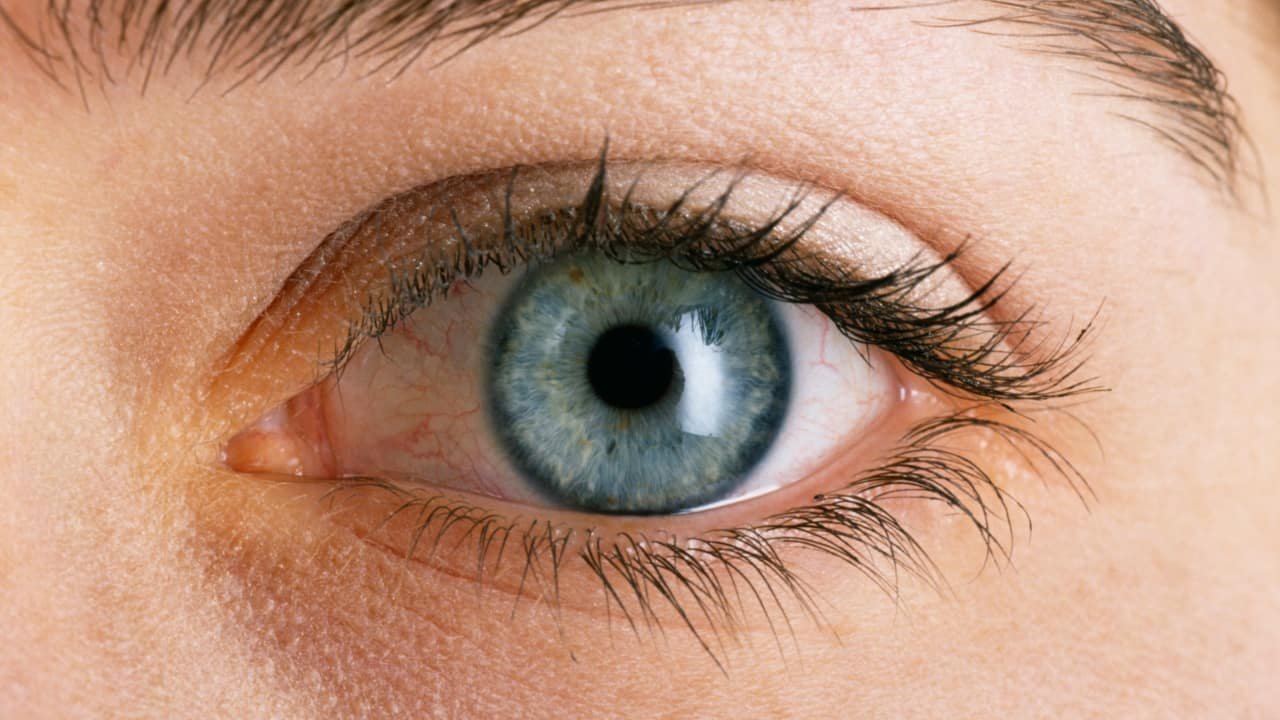I have been writing this column for a couple of months now. It’s amazing to me that so many people are following along on my long, strange, nerdy journey. I hope that is because you can resonate with it, mostly just so I know I’m not the only one on this adventure with my kids. But while I have you here, I want to talk about something that we don’t think of often. We always bring up online safety, too much screen time and what kind of games are appropriate for our children, but we never talk about the effect that screens can have on their development long term, in this case, their eyes. Blue light glasses seem like the newest fad, but how important are they really?
Before I begin, I want to say outright, this isn’t a sponsored column or anything like that. I actually approached GUNNAR to learn more about the subject and order some blue light glasses for myself and my kids. With remote learning being a huge focus in our lives lately, on top of gaming, TV and cell phones, our kids are in front of screens more than ever. That’s not just because we are being lazy parents either, computers and technology are just a natural part of life now. Over time, society made the switch from books and libraries to ereaders and the internet. It became second nature to us, and only now with my generation, are we starting to see the real effects.
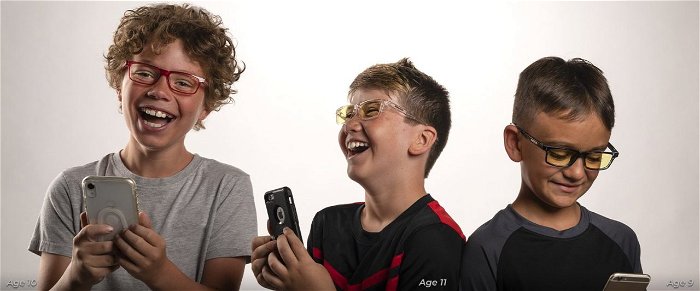
Writing this column has put me in front of a screen for most of my day. I’ve never had any problems with my vision and made it through 32 years without so much as needing to squint. But now, after staring so closely at a screen all day, I’m noticing a lot of differences. Sometimes things seem blurry, sometimes it’s a headache, and sometimes I find myself laying in bed wide awake without any explanation. The people at GUNNAR have put their time and effort into research, and it turns out blue light is to blame. GUNNAR has long been taking care of adult eye care needs with their prescription and non-prescription blue light lenses, but now they’ve added their GUNNAR Youth line, and they truly believe it’s a vital product to protect our children’s development.
GUNNAR Optiks, Director of Marketing, Georgina Petrie said “In a digital age where kids and teens are consistently on their devices for school, entertainment, gaming and to connect with their friends and family, we wanted to insert ourselves into this category officially. Just as parents wouldn’t let their kids in the sun without the proper sunscreen protection, we want to educate the millions of parents out there about protecting their children’s vision from the negative effects of digital screen use and blue light.” As a mother, and an avid gamer, I completely agree. I am 100% the mother that slathers my kids in sunscreen, tells them not to sit too close to the TV, but sure, here is a laptop, here’s your tablet, don’t worry about those.
I managed to speak to Georgina Petrie and Dr Miki Lyn Zilnicki via email and pick their brains regarding our time on screens, blue light glasses and what kind effects we may see long term for both us and our children.
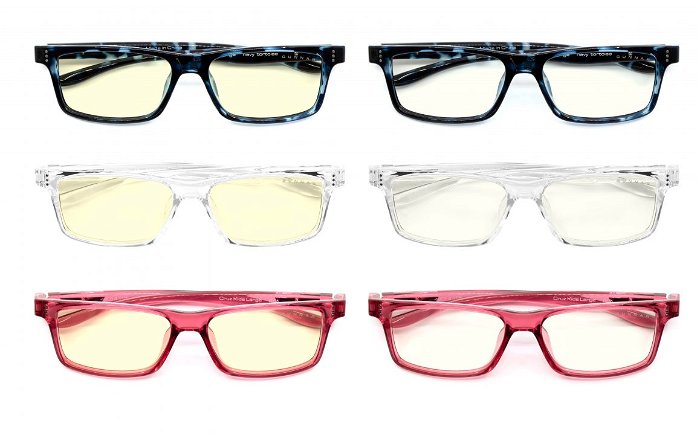
——————————-
Dayna Eileen: What long term effects are blue lights projected to have on children who began using screens early in life?
Dr Zilnicki: This is the challenging question: we really don’t know. The thing that we for sure know is that blue light can alter our sleep cycles. This can have detrimental effects on all aspects of development if the child is not sleeping well consistently.
We also know that blue light contributes to digital eye strain or computer vision syndrome, which is a diagnosis made when there are multiple eye/vision related symptoms related to extensive screen use. The potential long term ocular health effects from the blue light exposure are more unknown. Some early studies indicate some correlation to the advancement of macular degeneration and are currently being studied.
I frame it this way to patients: smoking used to be “the thing to do” (heck doctors used to smoke with patients in the room!) Until they realized how terrible smoking is for your overall health and the long-lasting effects it has systemically.
So, say in 50 years the studies come out and say “blue light has no effect on your ocular health,” well then, no harm, no foul wearing these glasses. BUT if the opposite comes out and wearing a simple pair of glasses could have prevented damage to your (and your children’s) eyes, wouldn’t you be kicking yourself? We all wear sunglasses without a second thought, this is the same thing!
DE: What age should children start using blue light glasses?
Dr Z: I encourage any child who is on a device for any length of time to use blue light blocking glasses. There are a few recommendations out there in terms of screen time exposure, but the one I discuss with my patient’s is the American Pediatric Association Screen Time Recommendations:
● Children younger than 18 months: get ZERO screen time with the exception of video chatting/photos
● 2-5-year old: limited to 30 minutes/day (used to be 1 hour/day)*
● 5-year-old and above: more flexible, but should not be on the device 1 hour before bed. I recommend no more than 2hr/day of leisure screen time with visual breaks every 30 minutes.
*Within these guidelines, it is recommended that the device used by young kids should be with the parent present to guide the activity, making it interactive and turning it into a learning experience versus just a passive visual experience.
I always recommend creating the habit early so that they know that when they use their device, glasses go on and if they take them off the device goes off. Also, be the role model: you can’t expect your child to be compliant with the glasses if you are not!
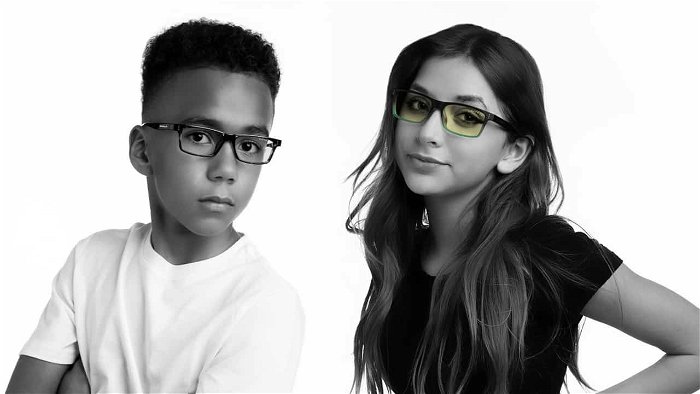
DE: Will I notice any changes in my child once they begin using blue light glasses regularly?
Dr Z: This depends on how your child is using their device. If they are before bed users, there may be a noticeable difference in their sleep, specifically how easily they fall asleep, how deep they sleep and how readily they rise. You may also notice a decrease in eye strain because of the natural reduction in glare from the screen while wearing the lenses.
DE: Should people be more worried than they are about the effects blue light has on all of us daily?
Dr Z: My personal opinion, yes. We are, and more specifically our children, are the guinea pigs. We know that blue light from the sun has delirious effects on our eyes so even though the amount of blue light that is emitted from our devices is significantly less, the proximity and length of exposure is something that needs to be considered.
Additionally, our children’s eyes have less natural protection because their pupils are naturally larger giving greater access to blue light to the posterior parts of our eyes and their crystalline lens is clear- as we age, it naturally yellows and acts as a natural blue light filter.
DE: As a mother and avid gamer, Georgia, could you tell me about your experience with blue light, blue light glasses and how it ties in with your parenting? (And any tips on getting the kids to keep them on?!)
GP: I have worked in the video game industry for a seriously long time and as such, have spent more than my fair share of time staring at screens for work and gaming. I think I just got used to tired, dry eyes and I didn’t really understand what was causing it, other than long work days and late nights.
When I first joined GUNNAR, I knew of and respected their brand, after all, they were the first to market ‘gaming glasses’ to gamers back in the day. It wasn’t until I started wearing their glasses that I noticed a huge difference in how my eyes felt at the end of the day. Quickly learning the science behind blue light and how it, and increased digital screen use, affected our eyes was quite alarming. It was a wakeup call for me personally. And it was a wakeup call for me as a parent! My kids are now on their laptops for school during the day, chatting and socializing with friends on their phones during the pandemic, as well as playing Fortnite for a few hours each day (son) / watching anime and using art design apps on the iPad (daughter). I have to say when I first gave them both their GUNNAR glasses, they thought it was pretty cool, mainly because they knew GUNNAR as a gaming brand. They were the first among their friends to get the glasses, so that was a good influence in getting them to wear them too. But like most things new to kids, the novelty wore off. I do have to remind them to wear their glasses sometimes, but I ‘encourage’ them by saying “no glasses, no screen time”.
What amazes me is that school districts haven’t ‘clocked on’ yet. They are the educators that should be taking a more proactive role as far as the eye health of our kids is concerned, particularly as curriculums nowadays call for more and more digital device use in classrooms. Maybe one day, computer glasses will be a part of the standard school supply equipment for kids. Until then, it’s up to parents to do their best to encourage healthy eye care practices in their kids.
Even though I know the research on how digital screens affect our visual system is still in its infancy, I do feel a sense of relief knowing that I’m doing what I can to protect my eyes as well as the eyes of my kids.
——————————-
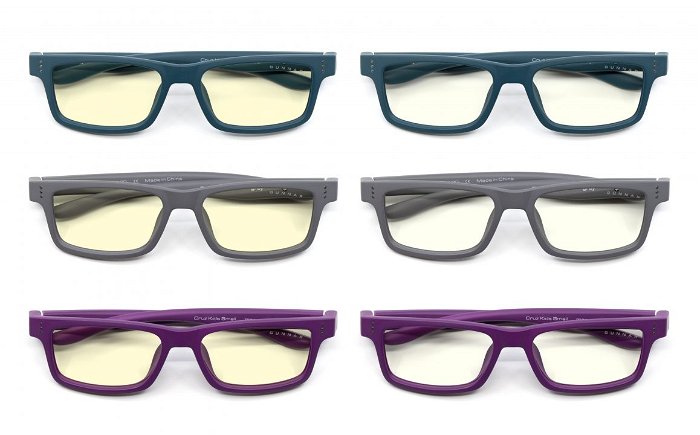
What I gathered from speaking with these two women was that their main priority is preventing any issues that can come from our devices and too much screen time. Though we still don’t have any solid answers on what this can do to us long term, it just makes sense to me to be prepared rather than do nothing and hope for the best. Dr Zilnicki was exactly right, no harm no foul in using blue light glasses if it turns out 20 years from now that they weren’t necessary. It’s not like they break the bank in price – and trust me, I don’t like to spend unnecessary money on myself – and I’d rather find out they did nothing, than not use them and find out they could have done something great.
My plan is to get ahead of the science and adapt to new technology. Though I’m definitely nowhere near the recommended screen limit for my kids (Shh, don’t tell), having them use their blue light glasses is the least I can do to help protect them long term. I wear mine when I’m on my computer for long periods of time, and I’m officially that person who loses their glasses while they’re on top of their heads now too, but it’s the least I can do to possibly protect my eye health and set an example for my children.
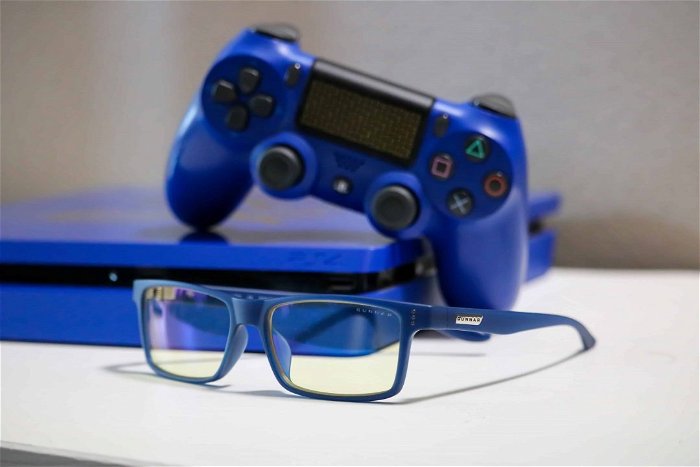
Protecting our kids is a parents most important job, that means from pain and suffering, bad language and adult subject matter, the dangers of the internet, and now the dangers of blue light. As always, stay informed, keep communicating, and make the choices that work best for you and your family – but a little extra protection never hurts!
